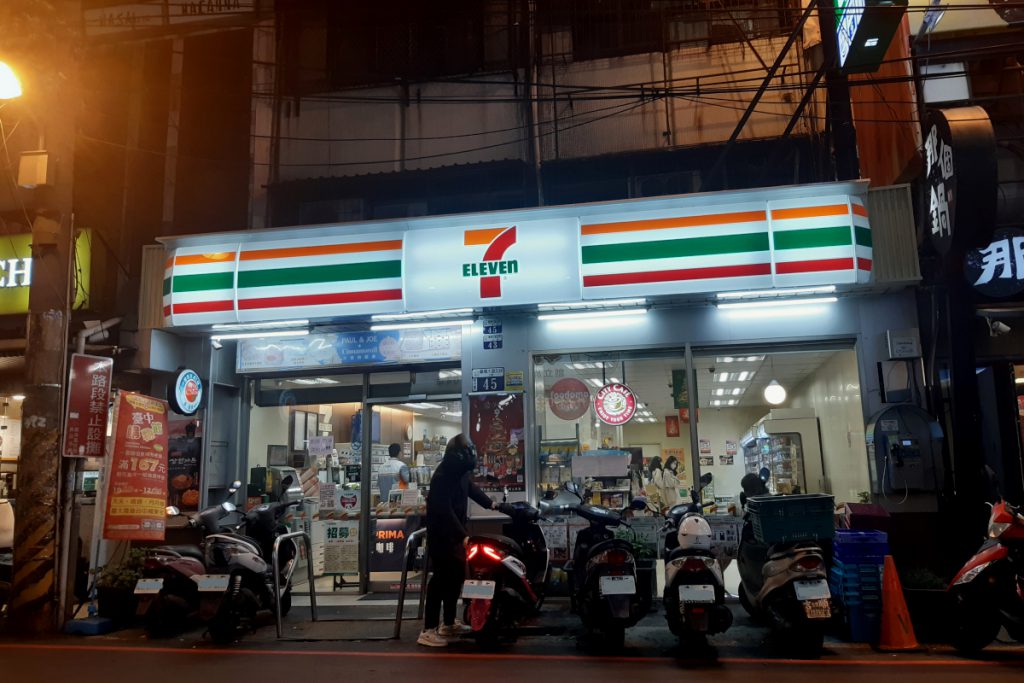by Anna Šopíková
Taiwanese vibrant cultures have a lot of unique sounds to offer. Although sounds can be heard all over the world, the level of noise here is quite different. Sounds also play considerable roles in Taiwanese society. Anna Šopíková takes us on a journey through the sounds of Taiwan.
Music is in the air of the streets of Taipei. Loudspeakers at the top of trash cars are playing the main theme of Ludwig van Beethoven’s masterpiece Für Elise or Tekla Bądarzewska-Baranowska’s Maiden’s Prayer, Op. 4. Three to four times a week in the afternoon, people go out to the streets with bags of waste in their hands. They look out for the yellow lorry followed by a white truck collecting plastic, glass, paper, and other recyclable materials. For many, the garbage truck is a kind of social event, where people can greet their neighbours and engage in small talk.
The traffic in Taiwanese cities can be highly unpredictable. In order to help people to save time waiting for the truck to arrive, the city governments decided to use music as a tool for giving the citizens notice that in a few minutes the garbage truck will be arriving in their street.
This garbage truck music is one of the most notable sounds of Taiwan. Beginning in Taipei in 1996, gradually all major cities in Taiwan started implementing the system “Keep Trash Off the Ground” that banned people from dropping garbage bags on the streets and leaving them to be disposed of by garbage collectors, as was the case before. Since then, people have to wait for the cars to arrive and drop their waste directly into the garbage trucks.
Sounds in Taiwanese Schools
When I came to Taiwan to study Chinese at a university, I also chose to take part in a music club. As a musician, I got addicted to the various exposures to sounds in the school environment. University students in Taiwan are surrounded by a variety of peculiar sounds every day. Living in the dorms, they are regularly woken up around 8 a.m. by the school bell announcing the beginning of the first lesson, which doesn’t usually start before nine.
As the eight o’clock bell echoes through the campus and slowly vanishes into thin air, the incessant whirling of the air conditioner takes the lead, frequently accompanied by a rotating fan machine. The ever-present sound of air cons can only be drowned out by a casual hooting of a motorcycle passing through the campus or an occasional birdcall in the trees.
When it comes to learning to play a musical instrument in Taiwan, the students’ power of concentration is astounding. In the music club, we were learning to play a traditional Chinese string instrument, the guzheng (古箏) and had at least ten students playing their instrument at the same time. The trickiest part is that not only are they playing simultaneously, but since their levels of music skills differ, almost all of them are practicing a different piece of music. What a contrast to the elementary music school classes I had attended for fourteen years in the Czech Republic. They would have two students at most, and they would only be playing at the same time when rehearsing a duet together.
Judging by the Taiwanese students’ opinions, with this simultaneous type of practice one can be easily disturbed by the others and cannot fully focus on their own repertoire. On the other hand, when talking to a colleague in class, she mentioned that it is good concentration training that can come in handy in the future.
Convenience Store Jingles
When entering or leaving one of the famous Taiwanese convenient stores, one is exposed to various jingles greeting the customers at the door. For instance, FamilyMart’s tune, which has changed in the past year to a more cheerful song, is a very enthusiastic but also haunting melody, for it does have the quality to be stick-in-your-head-able for days.
Apart from the door jingle, Taiwanese convenient stores provide customers with more vivid music too. In most of the shops, above the cashier’s head, there is a plasma screen presenting a series of advertisements on repeat throughout the whole day with the sound on. In the case of very popular 24/7 stores, the televisions are even switched on all night long and encourage customers to buy a bottle of oolong tea to have a slim figure, a box of soy milk, demonstrated by dancing soybeans, or to go to the cinema and watch the latest hit movie. As a part of marketing strategies, to make the adverts more memorable, many of them include rather loud ringing music. Fortunately, the shop assistants claim that after a few shifts they don’t take notice of them anymore.
Music of Garbage Trucks
According to various conversations with Taiwanese people, in some places, the music in the stores can change to Christmas carols or other popular songs during major holidays, such as the Chinese New Year or Christmas. Although celebrating Christmas is not a part of Taiwanese traditional culture, due to the influence of westernisation, Christmas carols resound not only in every shopping centre but also from garbage trucks. This may cause considerable confusion among the residents since they are not expecting this sudden change in music.
The music remains as a trigger for the habitual pattern of going down the streets and waiting for the truck. When the music changes, it’s easy to miss the trigger. As mentioned by many Taiwanese students, one can easily track the truck with a smartphone app these days, but this hasn’t made the music redundant.
All the sounds I am regularly exposed to in Taiwan still amaze me and bit by bit I am getting addicted to them. They play an important role in the organisation of society and on top of that, they come in useful as an icebreaker to start a conversation with a stranger.

